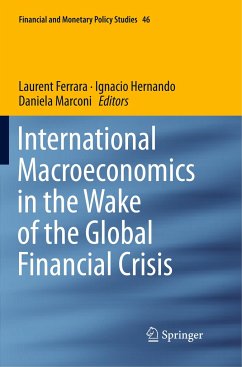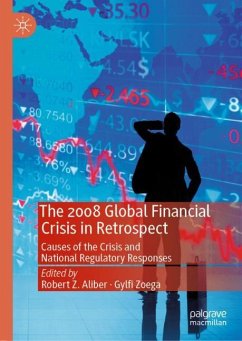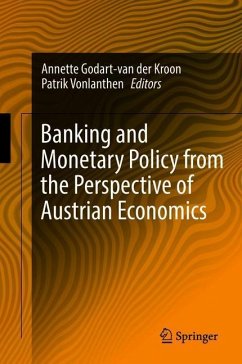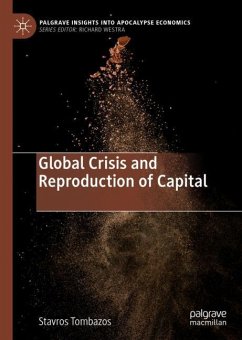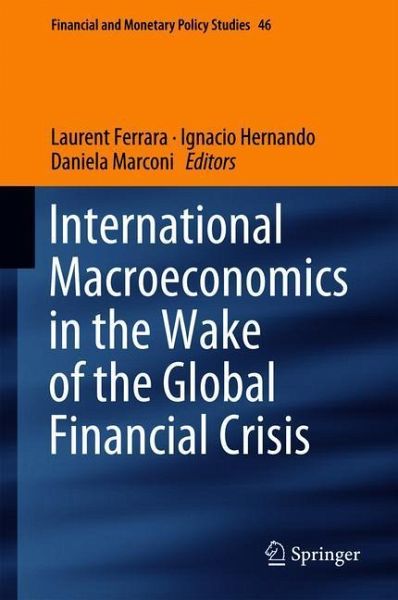
International Macroeconomics in the Wake of the Global Financial Crisis

PAYBACK Punkte
57 °P sammeln!
This book collects selected articles addressing several currently debated issues in the field of international macroeconomics. They focus on the role of the central banks in the debate on how to come to terms with the long-term decline in productivity growth, insufficient aggregate demand, high economic uncertainty and growing inequalities following the global financial crisis. Central banks are of considerable importance in this debate since understanding the sluggishness of the recovery process as well as its implications for the natural interest rate are key to assessing output gaps and the...
This book collects selected articles addressing several currently debated issues in the field of international macroeconomics. They focus on the role of the central banks in the debate on how to come to terms with the long-term decline in productivity growth, insufficient aggregate demand, high economic uncertainty and growing inequalities following the global financial crisis.
Central banks are of considerable importance in this debate since understanding the sluggishness of the recovery process as well as its implications for the natural interest rate are key to assessing output gaps and the monetary policy stance. The authors argue that a more dynamic domestic and external aggregate demand helps to raise the inflation rate, easing the constraint deriving from the zero lower bound and allowing monetary policy to depart from its current ultra-accommodative position.
Beyond macroeconomic factors, the book also discusses a supportive financial environment as a precondition for the rebound of global economic activity, stressing that understanding capital flows is a prerequisite for economic-policy decisions.
Central banks are of considerable importance in this debate since understanding the sluggishness of the recovery process as well as its implications for the natural interest rate are key to assessing output gaps and the monetary policy stance. The authors argue that a more dynamic domestic and external aggregate demand helps to raise the inflation rate, easing the constraint deriving from the zero lower bound and allowing monetary policy to depart from its current ultra-accommodative position.
Beyond macroeconomic factors, the book also discusses a supportive financial environment as a precondition for the rebound of global economic activity, stressing that understanding capital flows is a prerequisite for economic-policy decisions.





